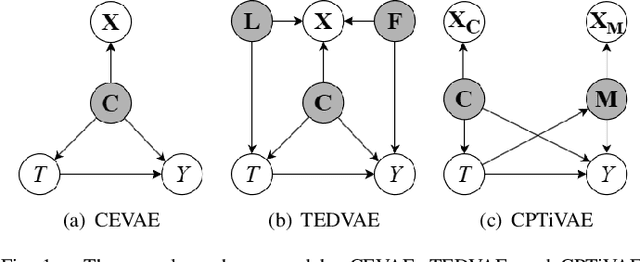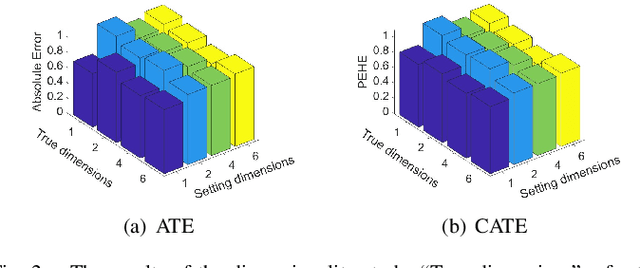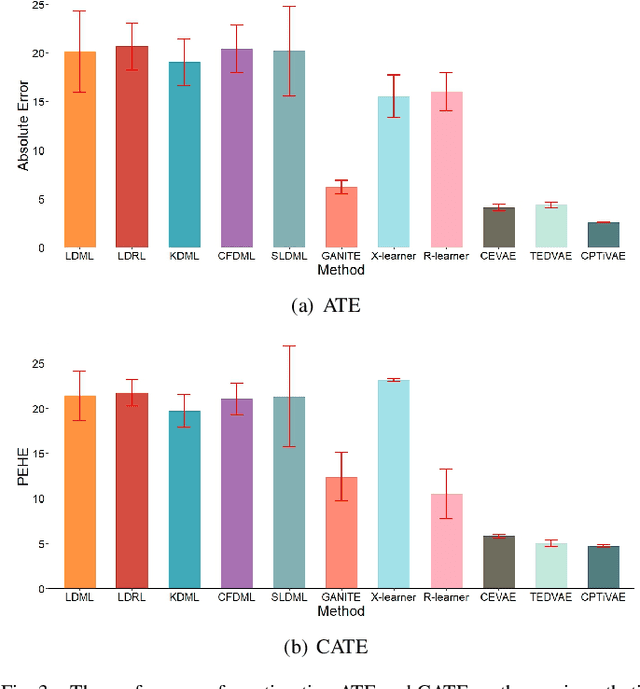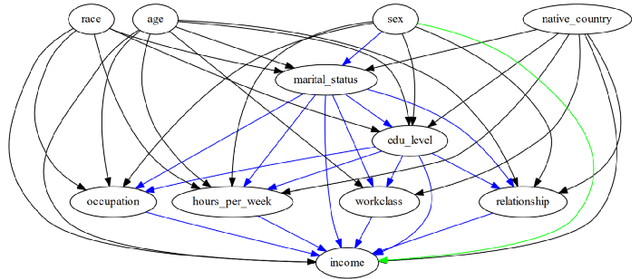Causal Effect Estimation using identifiable Variational AutoEncoder with Latent Confounders and Post-Treatment Variables
Paper and Code
Aug 13, 2024



Estimating causal effects from observational data is challenging, especially in the presence of latent confounders. Much work has been done on addressing this challenge, but most of the existing research ignores the bias introduced by the post-treatment variables. In this paper, we propose a novel method of joint Variational AutoEncoder (VAE) and identifiable Variational AutoEncoder (iVAE) for learning the representations of latent confounders and latent post-treatment variables from their proxy variables, termed CPTiVAE, to achieve unbiased causal effect estimation from observational data. We further prove the identifiability in terms of the representation of latent post-treatment variables. Extensive experiments on synthetic and semi-synthetic datasets demonstrate that the CPTiVAE outperforms the state-of-the-art methods in the presence of latent confounders and post-treatment variables. We further apply CPTiVAE to a real-world dataset to show its potential application.
 Add to Chrome
Add to Chrome Add to Firefox
Add to Firefox Add to Edge
Add to Edge